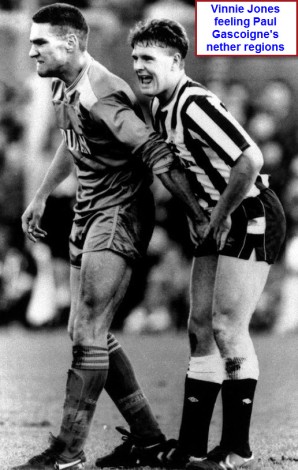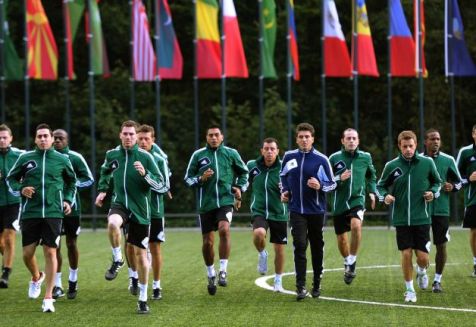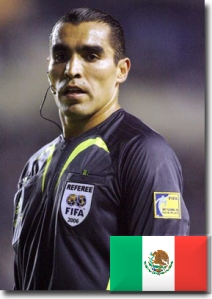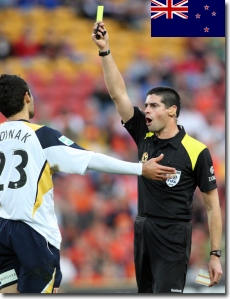REFEREES GOING GREEN
As reported recently by the Italian newspaper La Stampa, the Italian SERIE B division, the tier below the SERIE A professional division, will add the green card to the arsenal of cards a referee could possibly flash to onfield players. To reward players who commit acts of good behaviour. Yes. Read that again: a reward ….
Now, having received the OK from EUFA, the football powers in Italy is running an experiment where Italian footballers will soon be able to get a different kind of recognition from referees, apart from the established expulsion (red card) or caution (yellow). A card, coloured green, is to be shown for good sportsmanship and any other “acts of virtue” on the football pitch.
Players have long been accused of cheating. The act or ploy of diving and going to ground to simulate a foul in the hopes of conning the referee if there is no – or slight – contact from an opponent, and thus “earning” a foul or penalty is a pet hate by many a watching spectator.
According to Italian officials, the green card idea is to “highlight those players who help to make the game a sporting event and not a battle by primal instincts.”
Mmmm. Colour me a green skeptic. The green card system will be introduced this weekend (first week of Sept. 2015) in SERIE B in a bid, among others ideals, to stamp out diving incidents. Some commentators already predict the green card system will catch on like other recent innovations; goal-line technology and the spray-marking the grass where defenders must stand during free kicks.
There is no in-game reward for earning a green card, but the player’s name will be noted and a player list “You-are-in-the-ref’s-green-book” will be compiled at the end of the season.
The green card is a policy to counter the increasing unsporting behaviour witnessed over the last few years. The “win at all cost” mentality is certainly part to blame for this general malaise in football where players are showing increasingly disrespect to opponents and match officials alike. It must be said referees have a great responsibility in the upkeep of football’s image and sporting principles and, at times, match officials simply fail in their duty in using the existing Laws of the Game to eradicate or lessen such negative witnessed behaviour.
The fact, too, that coaches keep silent when they see their players guilty of such cheating acts, whether diving (simulation) or any other, with usually a tacit grin & nod if their player earned his team a penalty in the process, is certainly a contributing factor why we have not seen less of such on televised games beamed the world over. Unless coaches actively discourage these deceitful acts, it will continue. (Here’s looking at Bayern Munich & Netherlands’s international Arjen Robben.)
The green card was first adopted in Italian youth leagues via EUFA’s instruction to promote and reward Fair Play as an experiment, but this is the first time the green card scheme will be used at a higher professional level; and it could spread to other professional leagues if EUFA has their way pending assessment reports from SERIE B.
Green cards can be earned for such actions as kicking the ball out of play to stop play when a player is injured (before the referee has halted play), helping the referee make a correct call; and, peculiarly, admitting to having taken a dive in order to win a free kick. Admitting to diving/simulation? A rarity indeed.
There was a notable incident years ago. Liverpool’s Robbie Fowler and Arsenal’s goalkeeper David Seamen springs to mind. However, the match referee did not believe Fowler’s confession that the latter was NOT tripped by the Arsenal stopman.
Diving was previously defined as “unsportsmanlike” behaviour. Since replaced as an act defined as “simulation” under the “unsporting behaviour” section of the Law 12: Fouls and Misconduct, it is, given the wording, a “must-give” yellow card. That is, the referee has no choice but to caution the player if he reckons it was a simulating act.
Diving it is also commonly referred to as “gamesmanship.” The latter an euphemism in my not so humble opinion. I call those guilty of such acts simply cheats.
I was at pains stamping out such shameful acts during my career, notwithstanding the fact that I have called such simulation acts completely wrong after watching my own video self-assessments. But this was a rarity; the odds were, roughly, out of every 10 yellows shown for simulation, 1 was incorrectly judged to be so.
Hint: school yourself on the subject of reading body language; it’s a dead give-away identifying such simulating acts. I have already written helpful pointers for upcoming referees on this very subject earlier in this blog. Pointers that I found valuable in my career.
But the message was loud and clear during my watch; players rarely want to ire a referee whom has a reputation for not tolerating such onfield conning ploys.
Consider the possible application and ramifications of this new system. A player receives a yellow card, adjudged by the match official to have dived in his opponents penalty area. He admits to his shameful act, how rare it might have been in the past. All good showing the green card after the mandatory yellow, not? 🙂
Say the referee was indeed conned by Mr. Shenanigans. The referee awards the “penalty.” It is taken by his team. The selfsame player gets a guilty pang ( I must stress such acts are very rare,) and he now wants to confess AFTER the penalty kick was taken. One can clearly foresee here that the heretic will, in all probability, not approach the referee to get his green badge. The option to wash his “sin” certainly is available publicly via the referee’s green card, but I am not convinced that this will have any significant impact on players in spilling the beans on a regular basis to stamp simulation out.
However, do remember the recanting player’s “act of virtue” must be done BEFORE the restart of the next phase of play (the actual taking of the penalty) for the “foul/penalty” to be annulled, if the referee was hoodwinked. A referee can not change his decision once he has restarted the next phase of play (taking of the penalty kick), according to the current Laws of the Game.
The opposing crowd is likely to take a dim, unruly view on the confessor “coming green” much later in the match too, given the sinner’s act being the very reason why the opposing team is now a goal short. It’s rare for players even in the newspapers post match – and away from the heat of the battle and the hostile opposing crowd – to admit they have actually conned the referee and thus getting some degree of belated “absolution” in the print media for their honesty, if ever so quizzed on their act of controversy.
Now, do the referee dish out a green card ONLY if a player’s confession was done before the match official restarted play, but none if the confession was a belated one, and offered minutes later during the match? Rooting out simulation, in such scenarios, seems rather unconvincing to me.
Again, referees simply have to throw the Law book at players and be more vigorous in their dealings to caution such behaviour. The tools to eradicate diving are in the Law book.
There is a prescribed punishment for them, a caution. Football Confederations – and IFAB, the ruling body tasked with the officiating Laws – simply have to keep on giving clear directives to clean the game of this blight. And do take referees off the various panels if certain match officials consistently fail to abide by IFAB instructions.
I doubt that even a financial reward and bragging trophy attach to the green card system will entice these multi-millionaire players to confess in droves. One awaits the assessment reports to see the benefit and exact impact of this experiment.
One can also imagine the football administrators having a field day subtracting green cards from a player’s yellow/red cards received at season end to determine the most pious player in their league.
Furthermore, I doubt the green card is going to be more effective in stamping out cheaters, given the current (evolving) administrative system by some football leagues where, retroactively, players are being cited and suspended if caught diving on match video review replays.
“ There’ll be a yellow card, a red card and now a green card, specifically designed to reward good behaviour. What next, a sticker for kicking a ball? “
In my opinion, the green card is quite superfluous. I will be surprised if the green scheme will, suddenly, eradicate or diminish such ills. It is, foremost, up to referees to do their job properly, with a helping hand and concerted campaign by team coaches to lessen such behaviour.
Since football’s yellow and red cards are by themselves not preventative measures, but retrograde punishment for an act deemed unsporting, or for serious foul play, behaving sportingly onfield is easily noticed – and clearly seen – by every spectator. This has been so for decades without the referee getting into the counter-balancing act of being seen to, officially and publicly, reward such confessing sinners.
What’s wrong with the current – and effective – practice where the referee simply thanks the player for his sporting behaviour onfield? Such I have uttered many times in my career in acknowledging players’ sportsmanlike behaviour. It is up close, a personal comment directed at the individual and certainly to be appreciated to a greater extent by the player. This is and was the practice for some decades now. Adding a green badge to the above current practice seems rather… silly, if you ask me.
Is there really a need for the referee to show the green card to, possibly, up to twenty different players because all team players – and possibly some substitutes too – actively tried to stop a violent brawl among two opposing, fighting players? Or trying to help disperse an unruly bunch of spectators who have invaded the playing field for whatever reason?
One wonders what hard man and ex-player Vinnie Jones might think of such a feel-good, Noddy-Green-Badge-gimmick-scheme, conjured up by the football confederation EUFA.
















































Recent Comments